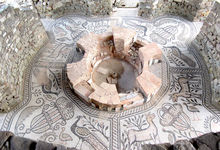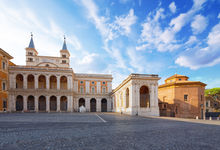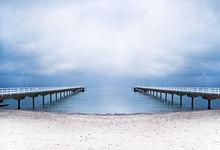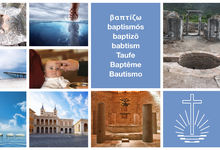The sacraments (13): “Let the little children come to Me”?
Some assigned the death penalty to baptism. And others established their very own “thousand-year kingdom of peace”. And it all began with an issue that still divides the denominations today.
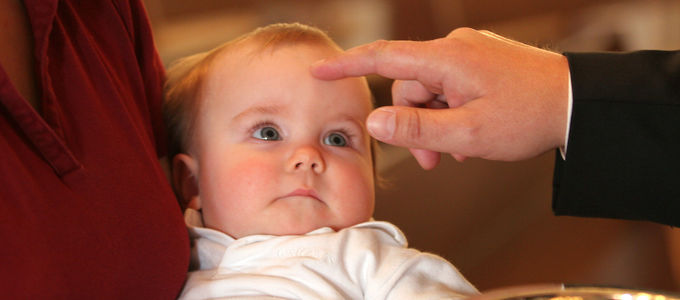
And suddenly the Reformation went off the rails: as of the early 1520s, Zurich and Strasbourg were the first centres of a movement of the disappointed. What these people wanted was a church that was completely free of the state, and they were upset that the great Reformers had taken what, in their view, were only half measures.
Since the radical Reformers were unable to find any examples of child baptism in the New Testament, they considered the baptismal acts that had been performed to date to be invalid, and so began to re-baptise only adults who were willing to profess their faith. The Protestant princes and cities reacted: in 1529, the parliament in Speyer made the actions of these groups—who called themselves Anabaptists—punishable by death.
Another thing that did not exactly help relax the tense situation was that, in 1534, end-time extremists from among the ranks of the Anabaptists took over the city council of Münster—and soon after, the entire urban area surrounding the Westphalian city. They went on to establish a religious dictatorship governed by community-owned property and polygamy, alongside the Ten Commandments. This New Jerusalem, which was supposed to last a millennium, was already history not two years later.
The Bible does not provide a clear answer
What has remained, however, is the question of infant baptism. A look into the New Testament does not provide any truly solid answers:
- nowhere is there any account of an infant being baptised. However, the possibility of infant baptism is not ruled out anywhere either.
- it is often mentioned that heads of families (for example Lydia or Stephen) were baptised with their whole household (Greek oikos). Whether this included children or even infants is not stated, however.
- this leaves us with statements such as the words of Jesus: “Let the little children come to Me” as auxiliary arguments in favour of infant baptism, and “for of such is the kingdom of God” as arguments to the contrary.
The first unambiguous documentation concerning infant baptism is found in the writings of the first latin church author Tertullian in around the year 200. He advocated against the practice. Fifty years later, the Church Father Cyprian advocated that infants should be baptised on the second or third day after their birth. And so the argument went back and forth until the practice of infant baptism finally prevailed in the sixth century.
It all boils down to what you believe
Whether we consider the arguments of the early Church Fathers or the Reformers, one thing stands out in any case: it is the manner in which baptism is understood that decides whether infant baptism is advocated or rejected.
- Those who primarily view baptism as an individual’s profession of God can only agree with baptising mature adults.
- Those who regard baptism as a rebirth—in accordance with John 3: 5 (“born of water and the Spirit” in order to “enter the kingdom of God”) would certainly be in favour of baptising infants as well.
- Those who view baptism as the washing away of original sin would consider it necessary to baptise children as early as possible in their lives.
And so it is that the different denominations still have different answers for the same old question. The vast majority of Christendom does practise infant baptism. In addition to the Catholic and Protestant churches, this also includes the New Apostolic Church.
Communities such as the Mennonites, the Hutterites, the Baptists, and the Pentecostal movement only accept adult baptism or “believer’s baptism”. At times this has led to problems in arriving at a mutual recognition of the sacrament’s execution. But that is a matter for a later issue of this series.
Photo: Oliver Rütten







